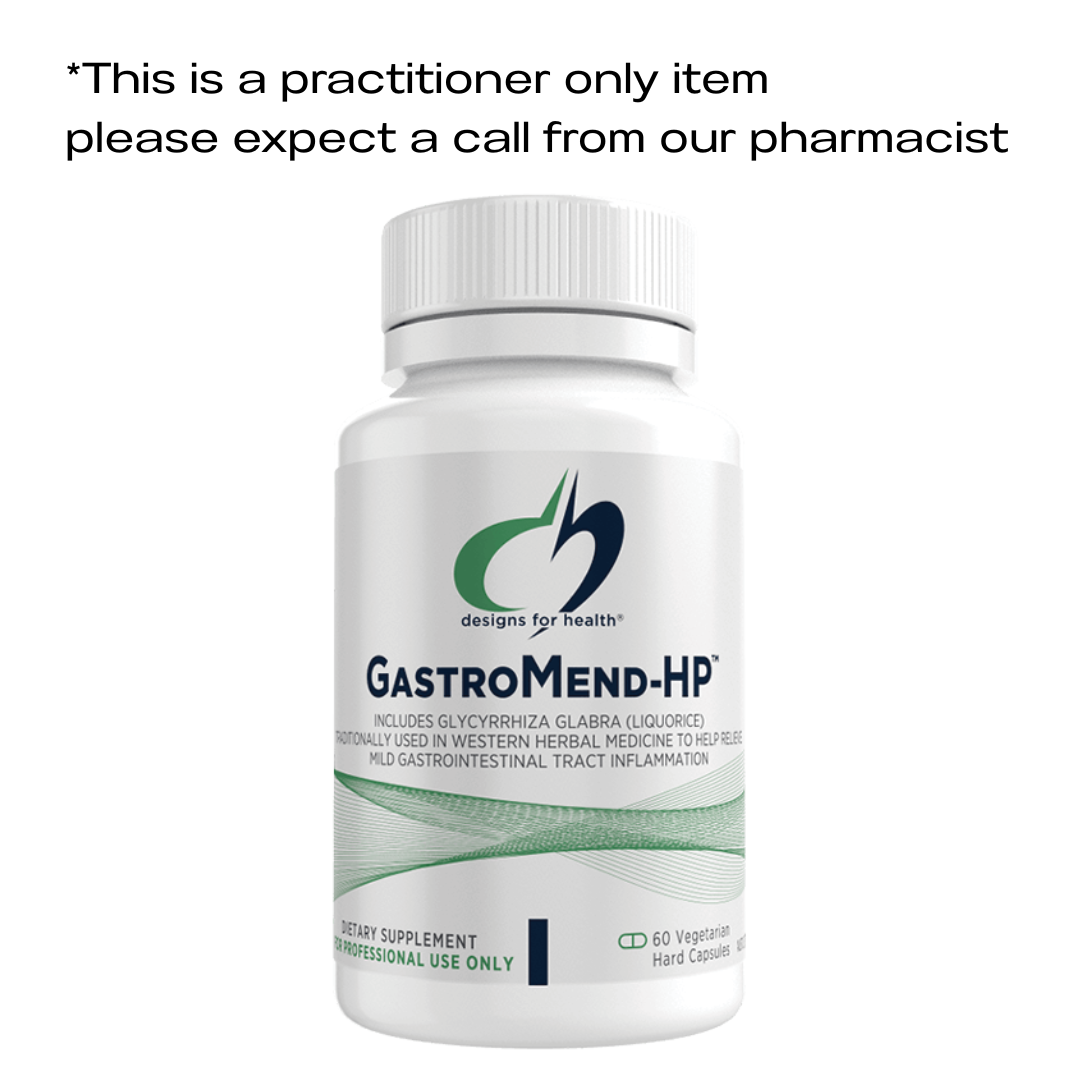1
/
of
1
Centree Health
GastroMend HP™ 60 caps
GastroMend HP™ 60 caps
Couldn't load pickup availability
Education
Inflammation, acute or chronic, is an important part of the immune system’s functional response. However, chronic gastrointestinal inflammation, where there is an imbalance between pro- and anti-inflammatory factors, underlies / causes a broad range of local and extra-intestinal clinical symptoms and pathologies.
Locally, gastrointestinal inflammation can induce abdominal pain, distention, cramping, altered motility, impaired intestinal barrier integrity, microbial dysbiosis and nerve dysfunction.4,5 Currently known extra-intestinal consequences of gastrointestinal inflammation includes neuropsychological (mood, anxiety, cognition); dermatological (atopic dermatitis, psoriasis); metabolic; disturbed sleep; poor oral health; and suboptimal nutritional status (vitamins A, D, K, carotenoids, folate, iron, zinc and selenium).
Just as the endogenous maintenance of intestinal homeostasis involves a complex combination of factors (epithelial barrier function, innate and adaptive immunity, cell migration and autophagy), the aetiology of gastrointestinal inflammation is also complex and involves multiple antecedents. Such antecedents include genetic predisposition, immune dysregulation and responsivity, diet (excessive intake of animal protein, sugar, additives; inadequate intake of fruits, vegetables, fibre), smoking, stress and medications.
Liquorice
Liquorice (Glycyrrhiza glabra) has a long history of use in Traditional Western Herbal Medicine for supporting gastrointestinal health and reducing mild gastrointestinal inflammation. Deglycyrrhizinated liquorice (DGL) has had the glycyrrhizin compound removed, and this form is used clinically to minimise glycyrrhizin-associated adverse side effects while maintaining the therapeutic properties of liquorice.
The primary active constituents of DGL are flavonoids, with other compounds including isoflavonoids, chalcones, coumarins, triterpenoids, sterols, lignins, amino acids and volatile oils. DGL ameliorates gastrointestinal inflammation by stimulating mucosal blood supply and increasing mucous-producing cell concentrations and activity.1,18 This subsequently promotes intestinal tissue repair, proliferation and healing to occur when chronic gastrointestinal inflammation is present.
Mastic
Mastic gum (Pistacia lentiscus) has been used traditionally for over 2500 years, with records of its’ therapeutic use for stomach and intestinal disorders dating back to ancient Greek times. The primary active part of mastic gum is the unique natural polymer, comprising of constituents including volatile and active compounds, terpenic acids, phytosterols and polyphenols.
Mastic gum has demonstrated significant anti-inflammatory effects (downregulating pro-inflammatory factors such as nitric oxide, prostaglandins E2, nuclear- factor Kappa B, tumour necrosis-factor-α, C-reactive protein, ICAM-1, IL-6, IL-8) and inhibiting macrophage migration and chemotaxis). Mastic gum also supports wound healing by ameliorating histological damage.

Zinc carnosine
Optimal endogenous zinc levels in the body are important for supporting gastrointestinal structure, function and repair, with deficiency associated with adverse effects on villi height and size, crypt cell number and depth, mucosal cell apoptosis, intestinal barrier integrity and function and local immune activity.
Zinc carnosine, also known as polaprezinc, is a chelated combination of zinc and L-carnosine that directly supports gastrointestinal health by protecting the gastric mucosa, restoring the gastric lining affected by intestinal damage.
These effects are attributed to several mechanisms including anti-inflammatory (inhibiting nuclear factor kappa-B); antioxidant (increasing superoxide dismutase-1, superoxide dismutase-2, hemeoxygenase-1, peroxiredoxin-1, and peroxiredoxin-V); and wound healing (increasing vascular endothelial growth factor, nerve growth factor, and platelet- derived growth factor, stimulating epithelial cell migration and proliferation, inhibiting mucosal injury).
Directions for use
Adults: Take 4 capsules per day, or as directed by your healthcare professional
Allergen Information
- No added: Gluten, dairy, lactose, seeds, nuts, Egg, Sesame, Soy.
- Vegetarian Friendly
Warnings
If symptoms persist, seek the advice of a healthcare professional.
Share


